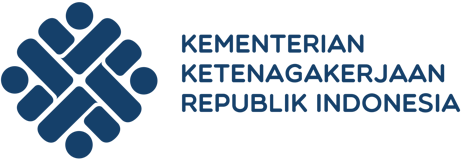
DATA SCIENTIST
KAB. SUMBAWA BARAT, NUSA TENGGARA BARAT
Diposting Sebulan yang lalu • Jumlah lowongan: 1
Batas waktu lamaran 05 Juli 2025
Lowongan segera ditutup
Lowongan akan segera ditutup, segera melamar sebelum tanggal 05 Juli 2025
Bidang pekerjaan
Teknik, Telekomunikasi
Jenis pekerjaan
Contract
Tipe pekerjaan
Lowongan dalam negeri
Jenis kelamin
Laki-laki / Perempuan
Rentang gaji
Dirahasiakan
Deskripsi Pekerjaan
Some of your duties will include:
- Deeply involved in the entire data lifecycle, from initial collection and preprocessing to sophisticated analysis and the development of actionable insights.
- A core function will be the design, implementation, and validation of diverse analytical models that extract meaningful patterns and predictive capabilities from complex datasets.
- This position demands a robust understanding and practical experience in several key areas, including data modeling techniques for various data structures (structured, semi-structured, and unstructured), a broad spectrum of machine learning algorithms (supervised, unsupervised, and reinforcement learning), and the principles and applications of deep learning architectures (such as convolutional neural networks and recurrent neural networks).
- Data integrity: Clean, preprocess, and organize raw data into usable formats. Ensure data integrity, consistency, and quality.
- Data Analysis and Exploration: Perform exploratory data analysis (EDA) to uncover trends, patterns, and anomalies. Generate descriptive statistics, visualizations, and summary reports.
- Model Development and Machine Learning: Develop predictive or classification models using machine learning and statistical techniques. Select appropriate algorithms (e.g., regression, decision trees, clustering, neural networks). Train, test, and validate models using best practices to ensure performance and generalizability.
- Research-Oriented Collaboration: Thrive in a dynamic, research-focused group with several concurrent projects, contributing to innovative solutions and high-impact outcomes.
- Stakeholder Communication: Communicate findings, insights, and recommendations to all stakeholders, ensuring alignment and understanding.
- Agile Development: Drive the adoption of agile methodologies, ensuring iterative progress and delivering high-quality solutions.
- Collaborate Across Teams: Work closely with product design and engineering teams to understand their needs and translate them into actionable data solutions.
Persyaratan Khusus
What skills and experience do you need?
- Minimum of 4 years of experience in data science or a related analytical role.
- Bachelor’s degree (or equivalent) in Statistics, Applied Mathematics, Computer Science, Engineering, Data Science, or a related discipline.
- Proven experience in data modeling, data mining, mathematics, statistical analysis, and their application in business contexts.
- Expertise in designing and implementing pattern recognition systems and predictive models.
- Strong proficiency in ML/DL frameworks such as TensorFlow, PyTorch, or Scikit-learn.
- Experience with MLflow (for experiment tracking and model management)
- Expertise in programming languages like Python, R, or Java.
- Experience with SQL and NoSQL databases.
- Good analytical and problem-solving abilities.
- A data-driven mindset with excellent analytical and critical thinking abilities.
- Comfortable and practical working in a fast-paced, research-oriented group with multiple simultaneous projects.
- Ability to communicate complex data in a simple, actionable way
- Excellent communication skills in English both verbal and written
Persyaratan Umum
Minimal pendidikan
Sarjana
Status pernikahan
Tidak ada preferensi
Minimal pengalaman
4 tahun
Kondisi fisik
Disabilitas & Non Disabilitas
Keterampilan
Python
SQL
NoSQL
PT. Amman Mineral Nusa Tenggara/84457
Buin Batu, Sekongkang Kabupaten Sumbawa Barat
Mining, Oil & Gas
Lowongan dari
Karirhub
Lowongan Pekerjaan
Lowongan dalam negeri
Lowongan luar negeri
